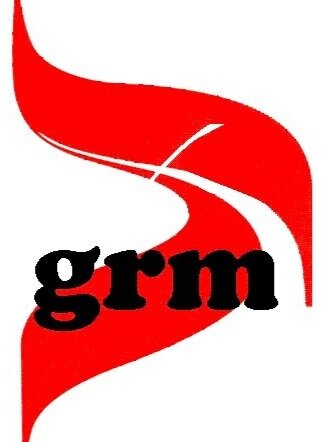ARE YOU SAFE? (Post 133)
TUESDAY, SEPTEMBER 1
Post 133
Are You Safe: EMOTIONALLY? Part 2 of Series: Are You Safe?
“Courage [is] the first of human qualities … because it guarantees all the others.”
-Winston Churchill
This will be an exercise in trust. The starting place will begin here and you will walk, by yourself, to the ending spot marked on this road. The light you will have is that of the moon and the stars. It sounded simple enough. The road was located on the campgrounds: there would be no traffic and the length of the walk was not long. Plus it was a straight shot with no intersections from which to wonder what way to turn …. and there would be no wild animals or strangers to fear Still, the thought of walking alone in the dark with no flashlight was a new experience for our group. I decided to go first … get it over with and maybe the next person would feel better knowing that there is someone already there to meet.
At first as I walked slowly, my eyes sensed the newness of being without an artificial light – a rather discomforting feeling. Then I became very aware of the stillness devoid of human voices. I did feel alone! To combat an already over-reacting imagination, I began to focus on my deliberate steps – one foot in front of the other, left-right-left-right. Soon enough, my eyes adjusted to the moonlit landscape; and I began to marvel at the starry sky. Next the soft sounds of crickets and occasional hoot-owls registered as normal to my ears. Eventually, ordinary thoughts took over any imaginary fears that had first surfaced. The darkness, the night sounds, the solitary walk all seemed close to normal by the time I completed my night-hike. .
Last month’s blogpost began a three-part series on Personal Safety & Addiction: Physical, Emotional, and Spiritual Safety. I noted that recovery from addiction is grounded in all three elements for one’s own safe-keeping. September’s focus centers on emotional safety. How can one be emotionally safe from gambling addiction? Often, persons contemplating recovery share with me that just thinking about the possibility of their quitting gambling entertains great fear. The what-ifs begin: what if I fail, will I ever want to try again? what will I do in my spare time? I’m going to miss my casino friends … I dread boredom – and even worse, loneliness … I’ll be missing that chance to really win big!
Too many people are thinking of security instead of opportunity.
They seem more afraid of life than death.–James F. Byrnes
Although a life controlled by addiction is out of control, it may seem normal. There’s predictability even when gambling is truly gambling, that is, risking something of value when the outcome is uncertain. The “habit” (some people call gambling addiction just a bad habit) has its regularities, complete with behavior patterns that cannot be defined as normal once a recovering person looks back at his/her previous gambling career. A quick glance at the Gamblers Anonymous Twenty Questions (www.gamblersanonymous.org) pictures a life filled with desperation and devastation. Still, the thought of leaving behind those gambling days and nights can strike debilitating fear – enough to gamble even more compulsively for some.
How can a person approach recovery with the assurance that making the attempt is truly worth it? Without being defeated by fear, even before the first small (and brave) steps are taken? Remember the night hike? Darkness, sounds, alone. What we can’t see or may hear and feel could tempt us never to try.
Once again, I turn to GA’s Suggestions for Coping with Urges to Gamble (www.gamblersanonymous.org). Sorting out the unmanageable-ness of any addiction, much less compulsive gambling, calls for clarity in vision, listening, and feelings. The following are tried-and-true methods to see through the darkness, hear reassurance, and feel that you’re recovery work will succeed.
SEE THROUGH THE DARKNESS
Write about the pros and cons of gambling in your life. Be honest about the overall positive and negative effects. Use these listings as a reminder throughout recovery.
Make believe that your mind is a slide projector with slides only displaying for you thoughts that are not related to gambling: loved ones, pleasant activities, etc.
Think completely through the bet and the consequences. What happens with a win? With a loss?
Accept the fact that you are not able to gamble safely.
Decide how you will fill your free time, instead of gambling. See this as a gift of time!
LISTEN TO THE SOUNDS
Speak words of recovery to yourself, especially when the urges to gamble come. Acknowledge the urge and then acclaim that you don’t gamble anymore.
If the urges persist, say to yourself that you’ll wait XX number of minutes. Do something else. Urges still there? Tell yourself again that you’ll wait XX amount of time. Repeat until the urge goes away. It will!
Decide and say that you’ve made a decision not to gamble just for today! Do this each day.
YOU ARE NOT ALONE
Communicate with a person you trust. Share honestly about your problems with gambling. Listen to your trusted friend/mentor/clergy person. Listen to advice. Listen to reassurance. Listen to words of support; remember them.
In closing, I share a note of assurance from John McCain in his book Why Courage Matters:
We are taught to understand, correctly, that courage is not the absence of fear but the capacity for action despite our fears.
(John McCain with Mark Salter, Why Courage Matters, Random House, 2004}
Remember, recovery works … and YOU are worth it!
Blessings,
Rev. Janet Jacobs, CCGSO
Founding Director
Gambling Recovery Ministries
855-926-0761
For more information on the IGCCB Clergy/Lay Minister Certification visit:
From IGCCB’s Resources for Coping with COVID 19:
https://personcenteredtech.com/tmh/clients (Online therapy preparation for clients) https://gambling.easywebinar.live/replay (Jody Bechtold telehealth webinar) https://youtu.be/dYUEjIFtT8E (Jody Bechtold telehealth webinar).
For more information on gambling disorder and recovery issues, go to:
www.indianaproblemgambling.org
